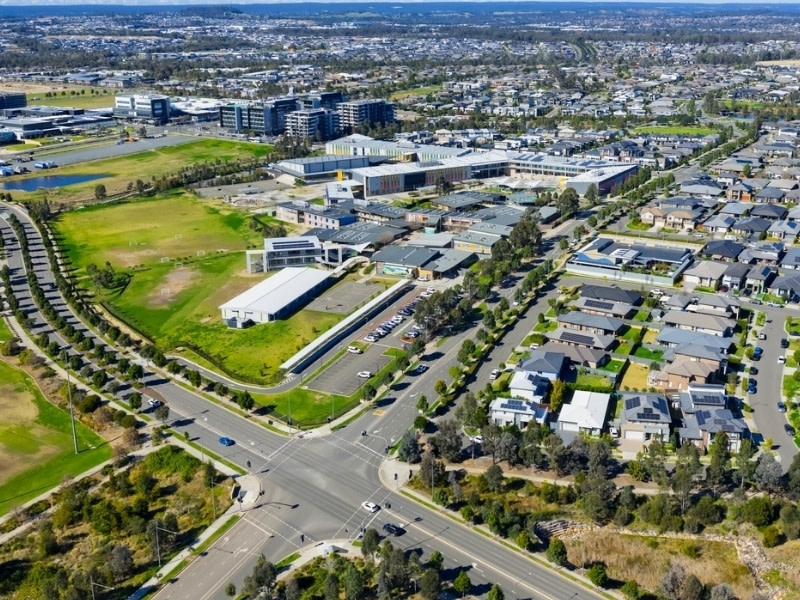NSW Unveils $200m Infrastructure ‘Carrot’ for Councils

The NSW Government has offered councils a suite of “carrot and stick” measures, with new infrastructure funding delivered alongside a bundle of reforms to improve transparency and conduct.
The Faster Assessments Incentive Program will offer up to $200 million for council infrastructure projects.
The first round of $67 million will be awarded to medium and high-growth councils based on their development assessment timeframes in the 2024-25 financial year.
NSW planning minister Paul Scully said councils assess 85 per cent of all development applications and “have a critical role to play in delivering the homes we need during the Housing Accord period”.
Each successful council can nominate a single infrastructure project to benefit from program funding.
Councils that met their Statement of Expectation target for DA timeframes, or came within 10 per cent but showed significant improvement, will be eligible for funding.
Eligibility alone will not guarantee success, with the final list of local government areas to be announced between September and October.
No applications to the program were necessary. Instead, councils with Housing Accord targets of 1000 homes or more were automatically included, with implied home demand used for some regional councils.
Second and third rounds are expected to follow in 2026 and 2027, with guidelines to be adjusted.
The program was first flagged in the 2024-25 Budget as part of the suite of Housing Accord measures that included the development of DA timeframe leagues tables.
The leagues table data shows DA timeframes decreased by 24 per cent in the past financial year, with an average time to decision now at 83 days.

“We have applied both the carrot and the stick, and now we’re seeing results,” Scully said.
“A 24 per cent reduction in assessment timeframes means DAs are being approved and builders can get construction under way faster and reduce costs.
“There is more work to do but there is a downward trend in assessment times, while the number of housing proposals are increasing.”
Crackdown on bad-faith councillors
Separately, the Minns government has announced changes to the way local governments handle matters of transparency, conduct and engagement with the public.
A new Model Code of Meeting Practice will take effect from January 1, while a new Code of Conduct is being finalised.
New regulations will mandate councillors declare interests, in line with how members of Parliament make those declarations.
Among the changes to meeting procedures, private briefing sessions to councillors on public domain matters will be disallowed unless the information is confidential.
Information discussed at closed meetings will need to be made public once confidentiality requirements have expired.
Following a recommendation from ICAC, councils will also need to give reasons when making decisions on planning matters that don't align with advice from council staff.
While most of the changes have been welcomed by councils, Local Government NSW said it was “disappointed” with the prohibition on private briefings.
“Briefing sessions are not decision-making forums—they simply ensure councillors are properly equipped with the background and technical information they need before a matter comes to the public chamber,” LGNSW president Phyllis Miller said.
“These briefings lead to better informed representatives and, ultimately, better decision-making outcomes for communities, but decisions are—and always will be—made transparently in council meetings, in full view of the public.”
Local government minister Ron Hoenig said while not everyone would agree with the changes, “most people in this state would agree action is necessary to improve transparency, increase community confidence and faith in local government”.

“They will make councillors more visibly in control of their councils to ensure they—as democratically elected representatives of their communities—drive the vision for their local area.”
The new code will also allow mayors to remove disruptive councillors or members of the public from meetings.
Proposed legislation will be introduced to Parliament to move responsibility for councillor misconduct cases from the NSW Civil and Administrative Tribunal to the Land and Environment Court.
The Minns government said the LEC has the powers and expertise to handle LGA matters expeditiously, including the power to suspend councillors immediately pending final hearings, and to order costs.
“The process for holding councillors to account for serious misconduct is too weak and is hamstrung by procedural complexity,” Hoenig said.
“Currently, a councillor can only be suspended after a bureaucrat in the Office of Local Government has written a report. The system is long, slow, and ineffective.”














